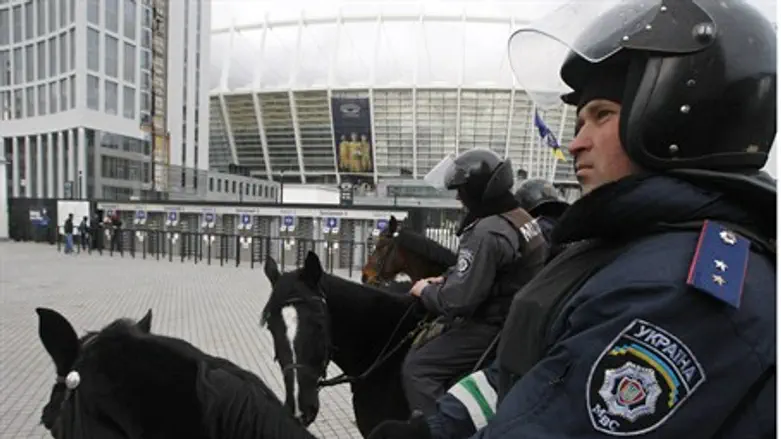
Ukrainian opposition leader Arseniy Yatsenyuk has rejected an offer by President Viktor Yanukovych Sunday to take up the post of Prime Minister - as well as several other offers acquiescing to the opposition's demands.
The offers included an impressive array of benefits for the opposition. Besides for Yatsenyuk being placed as Prime Minister - and being given the ability to dismiss the current government entirely - the position of Deputy Prime Minister was offered to Opposition leader Vitaly Klitschko.
Yanukovych even offered to rescind many of the laws he had enacted to the Ukrainian constitution since 2004, when he came to power, which had consolidated power to the presidency.
All of these were rejected, however. The reason: Yanukoyvch's failure to repeal anti-protest laws, the move which dissidents say infringe on basic freedom of expression and which helped fuel the current protests in the first place.
Opposition leaders presented a defiant face to protestors after the offer, with crowds cheering them on. BBC provided a translation Sunday.
"Viktor Yanukovych announced that the government wasn't ready to take the responsibility for the country and offered to the opposition to lead the government," said Yatsenyuk stated. "What is our response to this? We are not afraid of the responsibility for the destiny of Ukraine."
A special session of parliament has been called for Tuesday. Yatsenyuk calls it "judgement day."
Other demands by the opposition, to be decided at the session, include the move to grant amnesty to all protestors imprisoned since protests broke out in early December. They also demand presidential elections, which are currently not scheduled until 2015.
Klitschko insisted to the crowd that they would press ahead and talks would continue. "We are not turning back and we will keep discussing and trying to find a direction," he declared.
From International Tensions to Domestic Disputes
The development is the latest in a series of mass-protests in Kiev since early December, when hundreds stormed Independence Square to protest the government's refusal to become a full member of the European Union (EU). Instead, Yanukovych opted to strengthen ties with Russia - angering the population which was once under Soviet rule.
The protests have slowly snowballed, as reports of police brutality became rampant and the government began a hard crackdown against protestors.
The current round of violence erupted in the urban center last week over issues closer to home, after Ukrainian police forces turned away a mass demonstration marching to Parliament. The protest, which was against new anti-protest laws severely curbing the freedom of expression, turned brutal - with witnesses describing horrific scenes of police violence.
The reports only garnered more protests, which have been spreading across Ukraine, according to recent reports.
On Wednesday, Yanukovych finally agreed to meet with Opposition leaders - although little progress has apparently been made.
Diplomatic Disaster for Ukraine
In the meantime, most of the international community has issued a harsh response to the Ukrainian government after at least 4 died in the protests - and have threatened diplomatic and economic consequences.
The US threatened Kiev with sanctions last week, when White House spokesman Jay Carney told a briefing Thursday that the tensions in the country were a direct result of the government failing to acknowledge the "legitimate" concerns of the Ukrainian people. Washington has threatened economic consequences if talks between the government and the opposition fail, and has called on the government to revoke the laws.
The EU expressed concern about the violence as well.
"I strongly condemn the violent escalation of events in Kiev overnight leading to casualties. The reported deaths of several protesters are a source of extreme worry," EU foreign policy chief Catherine Ashton stated.
EU representatives stated that they are also considering taking further action over the deaths, but did not state whether or not it would revoke its offer of EU candidacy to the former Soviet state.